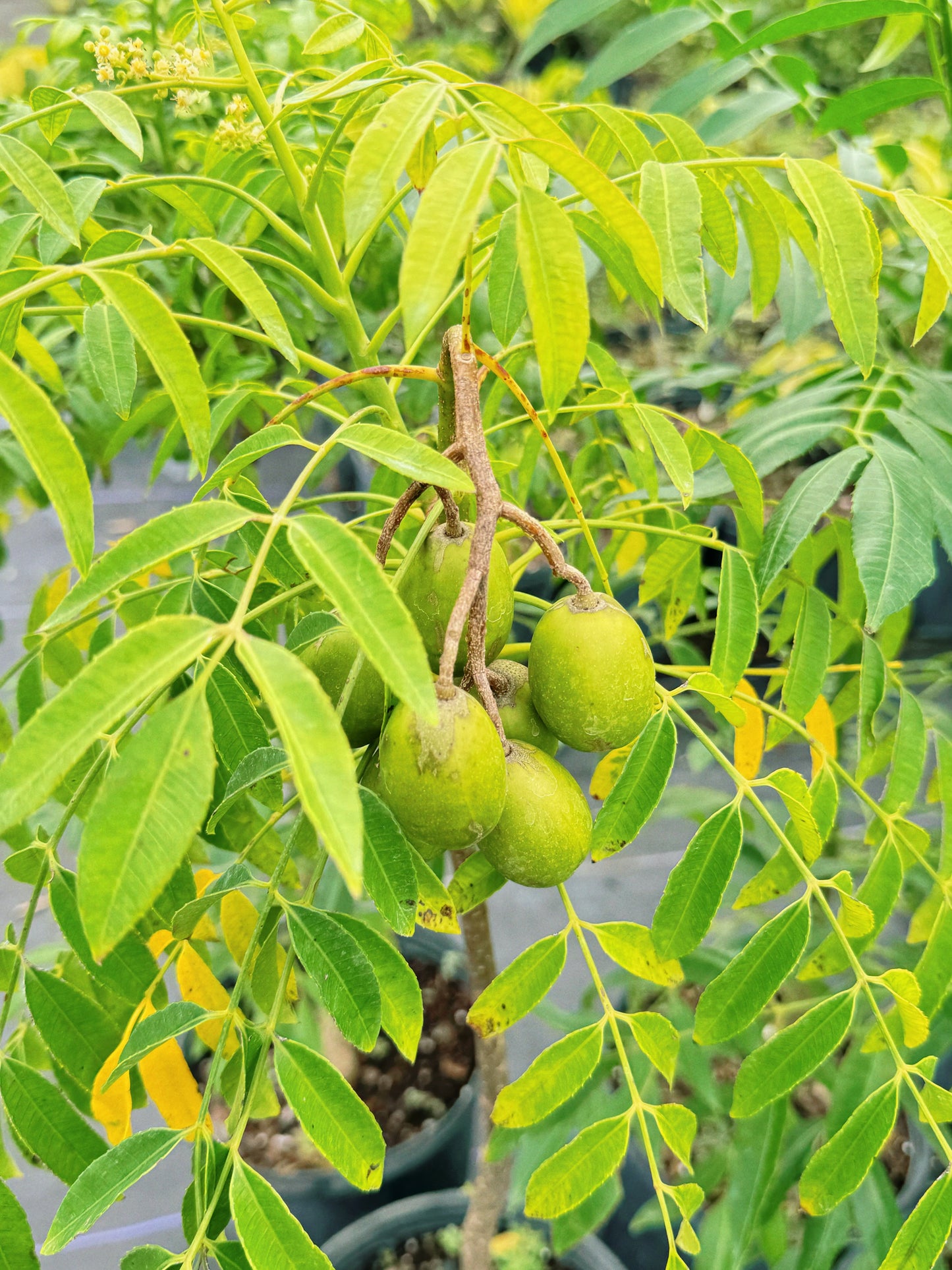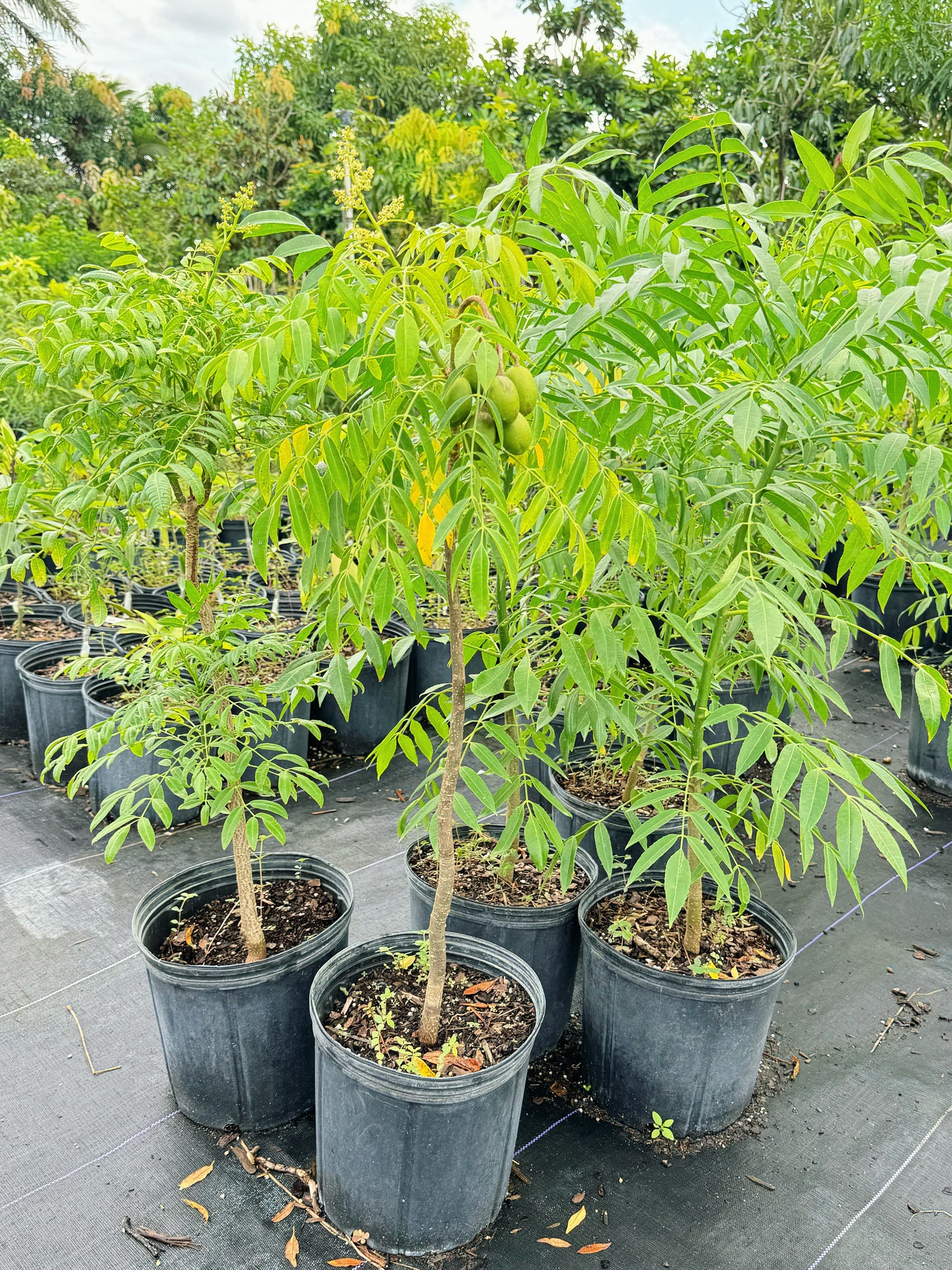1
/
of
2
Farm Fresh Florida
June Plum Tree 3gal (Fruiting)
June Plum Tree 3gal (Fruiting)
Regular price
$139.00 USD
Regular price
Sale price
$139.00 USD
Unit price
/
per
Couldn't load pickup availability
June Plum Trees
June plum trees (Spondias Dulcis) are tropical fruit trees that thrive in warm, humid climates. Here’s a guide to planting and caring for them:
Climate and Location
- Warm, tropical climate
- USDA Zone: 10-12
- Full sun
- Well-draining soil
Planting Process
- Dig a hole: Dig a hole twice as wide and as deep as the root ball.
- Amend the soil: Mix compost or well-rotted manure into the soil to improve drainage and fertility.
- Place the tree: Carefully place the tree in the hole, ensuring the graft union is above the soil line.
- Fill in the hole: Backfill the hole with the amended soil, gently firming it around the roots.
- Water thoroughly: Water the tree deeply to settle the soil and hydrate the roots.
Watering
- Water regularly, especially during dry periods, to keep the soil consistently moist but not waterlogged.
- Reduce watering frequency as the tree matures.
Fertilizing
- Fertilize the tree in early spring with a balanced, slow-release fertilizer.
- Avoid over-fertilizing, as it can lead to excessive leaf growth and reduced fruit production.
Pruning
- Prune the tree lightly in late winter or early spring to remove dead, diseased, or crossing branches.
- Train young trees to a single trunk with a well-spaced branching structure.
Pest and Disease Control
- Monitor for common pests like fruit flies, aphids, and scale insects.
- Use organic pest control methods or insecticidal soap to manage infestations.
- Be vigilant for fungal diseases like powdery mildew and anthracnose.
- Improve air circulation and avoid overhead watering to reduce disease risk.
Harvesting
- Ripeness: A ripe June Plum turns from green to yellow or orange.
- Harvesting: Pick the fruit by hand when fully ripe.
Share



